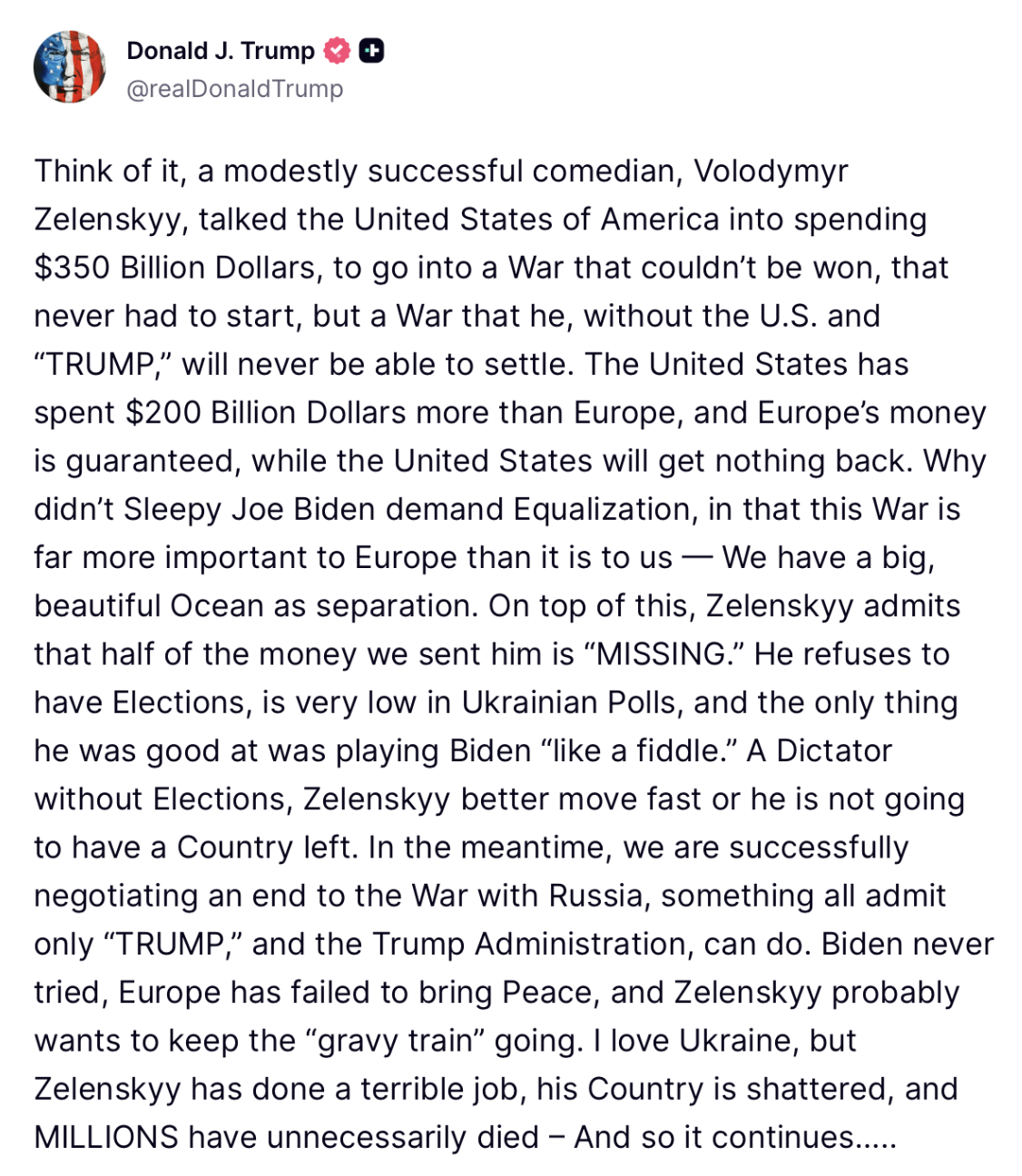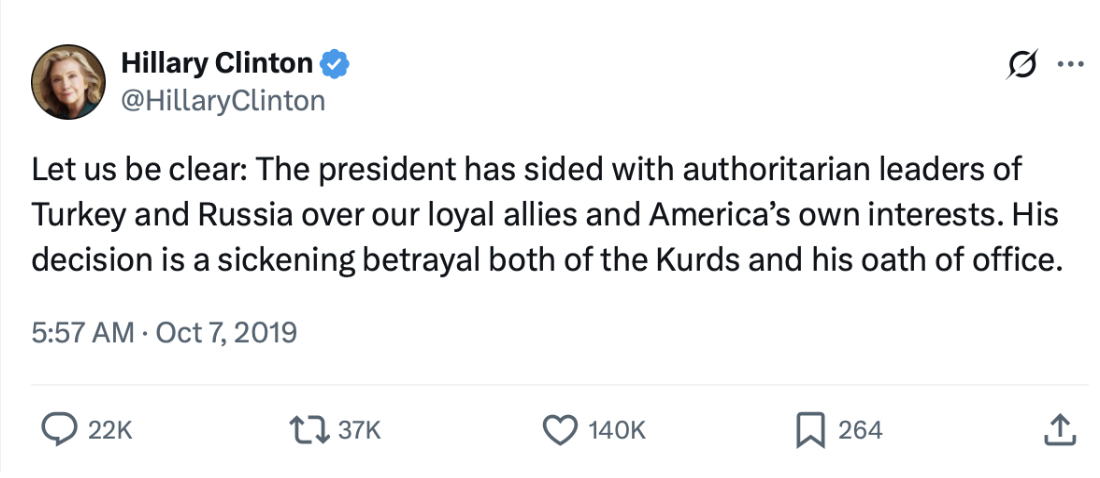Promises Made, Promises Broken: Trump’s Ukraine Problem
Since President Donald Trump’s entrance into politics, he’s styled himself as “The Great Negotiator” — an outsider who would come in, crack some eggs, and solve conflicts like a business deal on Wall Street. As this moniker shifted amorphously over the last decade, by the 2024 election cycle, it had taken a new form: “The President of Peace.” Although his recent actions have contradicted this title, such as authorizing strikes on boats off the coast of Venezuela and hinting at military operations in Nigeria, the Trump administration has tried to supplement this title with the claim that he’s ended eight wars. According to the U.S. Department of State, this list includes Israel and Iran, Rwanda and the Democratic Republic of the Congo, Armenia and Azerbaijan, Thailand and Cambodia, India and Pakistan, Egypt and Ethiopia, Serbia and Kosovo and Israel and Hamas.
This claim has come under heavy scrutiny for a myriad of reasons, as many of the cited cases were conflicts, rather than wars. Additionally, most did not end, but were momentarily halted while tensions persisted. The assertion, however, does speak to President Trump’s foreign policy style: he values short, symbolic victories that can be marketed at home over the slow, often costly, work of sustaining real peace. This is why the war in Ukraine remains one of the biggest thorns in his side.
During the 2024 election, one of Trump’s biggest applause lines was that he’d end the war between Russia and Ukraine within 24 hours of taking office. He made this claim 53 times. It fit neatly into the “America First” and “peace-time president” brand his campaign tried to sell. Yet, 2025 is almost over, and there has been no lasting peace. Who can blame him, though? He’s only had roughly nine months of leeway to complete this self-set goal; maybe he needs a full year.
President Trump speaks at a campaign rally in Rochester, New Hampshire, on January 21, 2024. During his 2024 Presidential campaign, he claimed multiple times that he would end the war between Ukraine and Russia within 24 hours of taking office.
Photo Credit: Liam Enea
To anyone who’s been following the war in Ukraine since its start — over 10 years if you consider the invasion of Crimea and military activity in the Donbas — none of this is surprising; ending a war that escalated with the biggest European invasion since World War II was never going to be a day one deal. What’s more concerning is that Trump appears to be discovering this in real-time.
Speaking of World War II, most major conflicts were ultimately won because one side recognized that there was no possible outcome in which they could win. Oversimplified as that may be, it’s true: wars are often won by projecting strength and endurance. Trump, unfortunately, has seemingly done everything in his power to undermine the presence of Ukrainian strength at every turn. Whether it was calling President Volodymyr Zelenskyy a “dictator without elections,” berating him for not saying “thank you,” in the White House, or excluding Ukraine from U.S. held talks with Russia in Saudi Arabia, it seems that for Trump, Zelenskyy can do no right.
Trump, in a Truth Social post, accuses Zelenskyy of being a dictator without elections on February 19, 2025. Ukraine has suspended its elections since 2022, following the imposition of martial law by President Zelenskyy and its approval by the Ukrainian Parliament.
These constant attacks and public flip-flopping do nothing but play into Russian President Vladimir Putin’s hands. As Ukraine’s former Defence Minister Andriy Zagorodnyuk put it earlier this year, U.S. “reluctance to strengthen sanctions or provide significant additional military support to Ukraine—likely strengthen[s] Putin’s belief that Western pressure will not intensify meaningfully as time goes on.” Trump’s “instant peace or bust” mindset might sound naive in private, but his public actions broadcast something worse: inconsistency. When he continually and globally undermines Zelenskyy, Russia hears that if they push hard and long enough, the U.S. will give up their support.
At a time when the world is navigating an ever-growing multitude of challenges, Trump’s frustration at not being able to end this war with a quick handshake and signature is bubbling to the surface, rendering him liable to favor whichever country flatters him most in a given moment. As the war rages on, it’s becoming increasingly clear that ending it with a clean line like the Korean war is unlikely; the JPMorgan Chase Center for Geopolitics projects only a 15% chance.
Arguably, what Ukraine should be afraid of at this stage is Trump’s frustration and impatience ultimately culminating in total abandonment. Unfortunately, this wouldn’t be without precedent. In 2019, on orders from Trump, U.S. soldiers pulled out of northeast Syria, leaving our Kurdish allies at the mercy of Turkey, a government that has repeatedly and continually violated Kurdish human rights. Protestors blocked the convoys, with one succinctly summing up the action with a sign saying, “Thanks for U.S. people, but Trump betrayed us,” a sentiment former Secretary of State Hillary Clinton also appeared to share.
On X (formerly Twitter), Clinton responded to Trump’s troop withdrawal from Syria, which she described as a “sickening betrayal.”
Whether abandonment is the direction Trump chooses to take in Ukraine is anyone’s guess; although, given the conflict’s scale, he likely wouldn’t be able to sweep it under the rug in the same fashion. What remains true, regardless, is the naivety of his original claim and how poorly he has handled the situation up to this point. Even if he hadn’t put himself in an unnecessary trap of his own design, it’s clear he lacks the patience and vision to lead Ukraine and Russia to any meaningful solution.
The cost of this shortsightedness won’t touch him, but it will affect the lives of thousands around the world who look to the U.S. for leadership during these brutal conflicts. At a time when the world needs a professional in the Oval Office, we have a sleazy landlord who, true to character, continues to try to sell us on quick fixes and ignores the pipes bursting.


